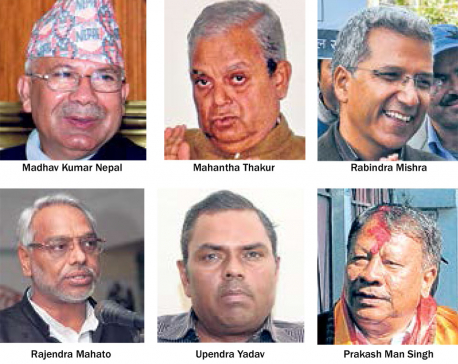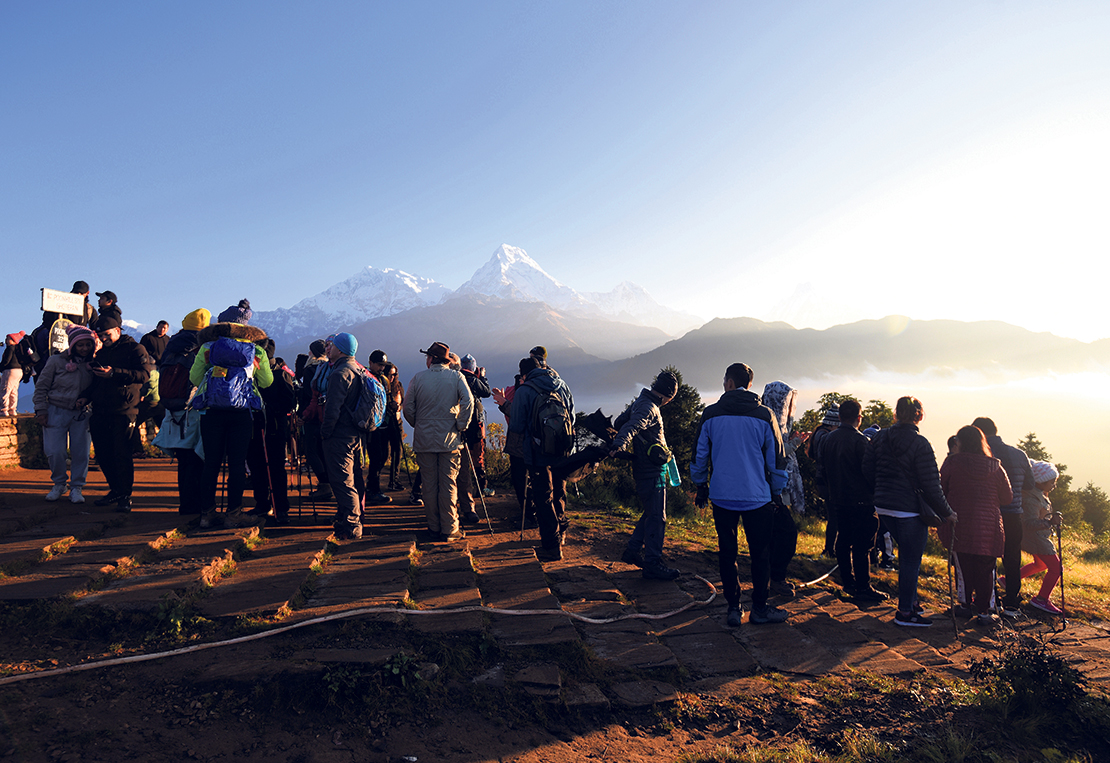
OR
Periodic elections
Astonishingly, there have been no local elections in Nepal for the past 18 years. For most of that period the country was going through a wrenching political transition, the process that continues till today. First it was the Maoist insurgency which hindered local polls.
Then, after the overthrow of monarchy in 2006, the focus shifted to getting national politics back on track. But as successive governments postponed local elections, local level governance was decimated. After the term of the elected local bodies ended in 2002, and since there could be no immediate elections, these bodies were replaced by ad hoc all-party committees to oversee local issues. But instead of working together for development, as was intended, the political parties represented in these committees started to divide the development funds from the center among themselves, in the clearest possible case of ‘corruption by consensus’. When the tales of their misappropriation of development funds started getting more and more egregious, the government in 2012
dissolved even these ad hoc committees. Since that time local bodies have been run by
bureaucrats, in close coordination with local branches of national political parties.
But this arrangement has proven to be even more liable for abuse. Now instead of the
political parties dividing all the spoils among themselves, they share some with local bureaucrats. There would not have been such a prolonged vacuum at the local level, with the concomitant increase in corruption and decrease in development initiatives, had the dates for periodic local elections been inscribed in national laws. This is why many lawmakers now want this provision inserted in the Local Level Election Bill that has just been tabled in the parliament. But why stop there? Why can’t the dates for provincial and federal elections also be included in our laws? Such provisions have become important in a country that could, in all likelihood, continue to witness a high level of political instability in the foreseeable future. Periodic elections are a must for the health of a nascent democracy, as we are finding out in Nepal. Otherwise, if there is no mechanism to guarantee periodic elections, there is a risk of parties using elections as political tools; certain parties will only agree to elections if they feel the electorate is in their favor. This trend also boosts authoritarian tendencies.
The sovereign people cannot, under any pretext, be denied of their fundamental right of periodically choosing the representatives to rule on their behalf. There could in fact be nothing more undemocratic than denying them their inalienable right to vote—and on time. Hence as our lawmakers discuss the possibility of amending the constitution for the second time, they should simultaneously consider inserting the periodic-election provision in our electoral laws concerning all three sets of elections. (It is hard to think of a single good reason not to do so.)
Periodic elections are lifeblood of democracy. It is thus dangerous to make them subject to political bargaining. Why not instead have set cycles that both political parties as well as their electorates can follow and prepare for?
You May Like This

Cash fine of up to Rs 200,000 proposed for misconduct by online business operators
KATHMANDU, Jan 3: The government has sought to fine up to Rs 200,000 those traders who carry out online business... Read More...

Some leaders to miss vote, others to be unable to vote for themselves
KATHMANDU, Dec 7: Some senior political leaders will be unable to vote for their own candidacies in Thursday’s first elections under... Read More...

Kathmandu School of Law wins 58th Jessup International Law Moot Court Competition
KATHMANDU, March 7: Kathmandu School of Law won the national round of the 58th Philip C. Jessup international Law Moot Court... Read More...





Just In
- 286 new industries registered in Nepal in first nine months of current FY, attracting Rs 165 billion investment
- UML's National Convention Representatives Council meeting today
- Gandaki Province CM assigns ministerial portfolios to Hari Bahadur Chuman and Deepak Manange
- 352 climbers obtain permits to ascend Mount Everest this season
- 16 candidates shortlisted for CEO position at Nepal Tourism Board
- WB to take financial management lead for proposed Upper Arun Project
- Power supply to be affected in parts of Kathmandu Valley today as NEA expedites repair works
- Godepani welcomes over 31,000 foreign tourists in a year






_20220508065243.jpg)







Leave A Comment